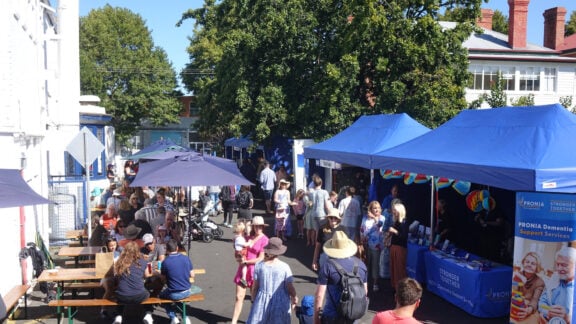After taking two-time FIFA world footballer of the year Carli Lloyd to the pinnacle of world football, leading youth development coach James Galanis is also hoping to inspire Panos Armenakas to great heights.
Galanis’ senior playing career was mostly spent in the Victorian State League before he moved to the USA in 1997, and it was there that he started his coaching career, with a focus on training high-level players.
After starting out as an independent coach with Medford Strikers in 1997, Galanis is now the club’s technical director and in the year 2000 created the Universal Soccer Academy. He also works for the US Soccer Federation as a coach and director at the National Training Centre in New Jersey, which is an identification and training program. Galanis currently mentors several players around the globe, but his most notable pupil is two-time World Cup winner Carli Lloyd, whom he first met in 2003 after she was cut from the U21 Women’s national team.
In January Lloyd won the FIFA Women’s player of the year for a second time in succession, and Galanis says reaching the pinnacle of world football was always the objective.
“Carli and I have been working tirelessly for the last 14 years to get to this level,” he says. “Our goal was always for her to become the best player in the world. I’m happy for Carli as she has made huge sacrifices to her own personal life to assure she is continuously improving. The year 2016 was another great year for Carli as she scored 33 goals in 34 games and was by far the most consistent performer.”
Lloyd has no doubt in her mind that Galanis’ stewardship has allowed her to reach the top of the women’s game.
“The mental skills I have gained through James’ mentorship have been the reason behind my success,” she says. “James is also big on breaking down each technical skill. He goes into so much detail when teaching each technique. When we started working together he readjusted the way I executed all my skills and since then has continuously provided an environment that has helped my skills to keep growing.”
Greek Australian rising star Panos Armenakas is on the cusp of making his professional debut with the Udinese senior team and sought out Galanis in a bid to improve the mental side of his game.
“With James’ help I have been able to channel my energy purely on things that I can control and build character skills that are helping me become a first-class player with a relentless attitude,” he says.
Now in his third season in Italy, Galanis has no doubt that Armenakas can achieve his Serie A ambitions.
“I have been mentoring Panos for over a year now and spent two weeks with him over the Christmas break where I was able to work with him both on the field and on the mental aspects of the game,” he says.
“Panos has amazing skills, and with the work we’ve done on the mental and physical part of his game, I’m sure Panos will go on to play first team football at Udinese and for the Socceroos.”
Galanis was inspired to be a coach by world football legend Ference Puskas during his time as a youth player at South Melbourne. In 1987 Puskas was brought to Australia by a fellow Hungarian countryman named George Biritz. Biritz had the goal of building his own football academy that would produce world-class players to be sold abroad, so he hired Puskas to coach youth team players aged 15 to 18.
The club was called Parkmore SC and one of the players Puskas brought in was Galanis. With the galloping major at the helm, Parkmore was having a successful season, but issues behind the scenes started to surface. Internal rumblings between Puskas and Biritz saw South Melbourne approach the former Real Madrid striker and soon after Puskas announced he would be leaving the club.
Having recruited him once, Puskas again signed Galanis when he became coach of South Melbourne’s senior team.
“I was 18 at the time and it is definitely an experience that still remains clear in my mind,” Galanis says, looking back. “I knew I would be joining the club that I supported my entire life and with that came nervousness and joy. I remember the first day of pre-season when I was thrown into training with the players I grew up admiring.
“Ference was a laid-back type of coach that got the most out of the team. Knowing he was a world legend, we were all willing to run through a wall for him. Training comprised a lot of skill work and tactical games. I think the biggest lessons for me were the breakdown of technical skill, tactical awareness and how to play simple but effective soccer.”
With Puskas moving to a senior team environment, Galanis noticed that his coaching style changed.
“Ference was a different person at South Melbourne to the one we enjoyed at Parkmore SC,” he says.
“At South Melbourne, he was less vocal but obviously under more pressure to win. At Parkmore, he was very interactive with the players and really went out of his way to help us improve our skills and game sense. We felt the care he had for us and this injected an amazing amount of confidence in each individual.
“Having Puskas as a coach at Parkmore and then seeing him move on to South Melbourne, I learned that to be an effective coach you need to adapt to the players and team you have. At Parkmore Puskas was the ultimate youth coach with a huge focus in individual development. At South Melbourne he changed his entire coaching demeanour to a coach that is able to get the most of the already established players he had at his disposal.”
Unfortunately, the move to the NSL giants proved to be a step too far for Galanis, and he struggled to make an impact beyond the youth team.
“The first team was loaded with players that were on big contracts and Puskas admirably had a meeting with me to inform me it would be impossible for him to invest in any youth player,” Galanis said. “He gave me the choice to fight it out or leave. I decided to stay and I gave it all I got. I lasted for two years before terminating my contract and re-joining Clifton Hill FC.”
Looking back, Galanis says it’s those formative years as a youth team player under Puskas at Parkmore SC and South Melbourne that helped him to become the coach he is today.
“My experience at South Melbourne definitely helped in shaping me not only as a coach but also as a person,” he says.
“Experiencing the struggle the young players had to go through, I promised myself that when I left I would always be open and welcoming to young upcoming players. I ended up playing first team football for both Clifton Hill and Northcote and became a leader that always provided support and guidance.
“Over the last 20 years I have had the opportunity to coach at the senior level, and I’m sensitive in how I treat younger players and do everything I can to nurture them and give each player an opportunity to play first team football.”









